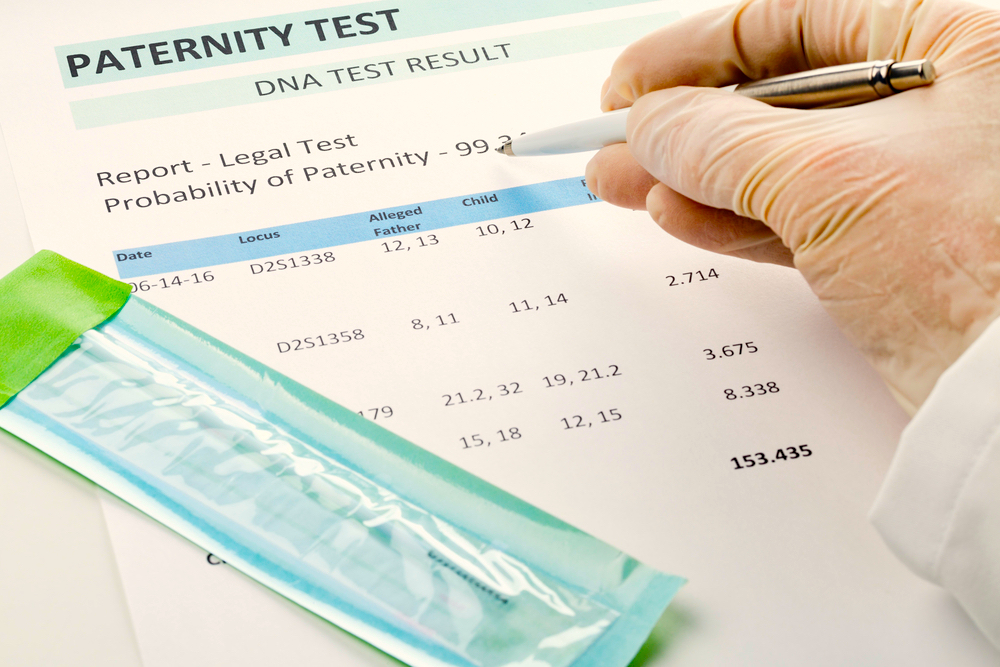The desire to know the biological father of a child has led to the increased popularity of paternity testing. Paternity testing, also known as DNA testing, is a medical test that determines the biological relationship between a child and a potential father. This article will explore the paternity testing process, its accuracy, why people take it, and its legal implications.
What is a Paternity Test?
A paternity test is a medical test that analyzes the DNA of a child and a potential father to determine if they are biologically related. The test compares the genetic markers of the child and the alleged father to determine if there is a match. The test can also be performed using the mother’s DNA to increase accuracy.
How is a Paternity Test Performed?
A paternity test can be performed using various samples, including blood, saliva, or cheek swabs. Most laboratories prefer cheek swabs as they are easy to obtain and less invasive. The samples are then sent to a laboratory for analysis.
Is Paternity Testing Accurate?
Paternity testing is highly accurate, with a probability of more than 99% when the biological father is included. When the biological father is not included, the probability drops to around 90%. However, the accuracy of the test can be affected by several factors, including laboratory errors, sample contamination, and human error.
Why Do People Take Paternity Tests?
The reasons for taking a paternity test vary. Sometimes, it is to confirm paternity for legal reasons, such as child custody or child support cases. In other cases, it alleviates doubts or suspicions about paternity or establishes a relationship between a father and child.
Legal Implications of Paternity Testing
Paternity testing can have legal implications, especially regarding child custody and child support cases. Sometimes, a court may order a paternity test to establish the biological relationship between a father and a child. The test results can also be used to determine child support payments.
At-Home Paternity Testing
At-home paternity testing kits are now available and offer a convenient and affordable way to test for paternity. These tests are easy to use and involve collecting a sample using a cheek swab. However, the accuracy of at-home paternity tests may not be as reliable as laboratory tests, and the results may not be admissible in court.
Ethical Considerations
Paternity testing raises several ethical considerations, especially when it involves children. Some argue that children have the right to know their biological father, while others believe that the test may cause emotional distress or lead to the breakdown of families.
Counseling and Support
Paternity testing can be sensitive, and counseling and support may be necessary, especially for children. It is essential to seek the services of a qualified counselor or therapist to help individuals and families navigate the emotional and psychological impact of paternity testing.
- Vitamins for Bigger Buttocks and Hips in Nigeria
- The Ultimate Guide to Kids and Teens Cream: Tips, Benefits, and More
- How Much Is IVF in Nigeria: Understanding the Cost of IVF Treatment
- When to Start Antenatal Care in Nigeria: A Comprehensive Guide for Expectant Mothers
- Porn Addiction Withdrawal: Understanding the Symptoms and Coping Strategies
How Much Does Paternity Testing Cost?
The cost of paternity testing varies depending on the type of test and the laboratory used. On average, laboratory tests can cost between $300 to $500, while at-home tests can range from $100 to $200.
Are Paternity Tests Confidential?
Paternity test results are confidential, and most laboratories have strict privacy policies. However, it is essential to read the laboratory’s privacy policy before testing to ensure that the results are confidential.
Conclusion
In conclusion, paternity testing is a valuable tool that helps determine the biological relationship between a child and a potential father. It is highly accurate and can be used for legal purposes such as child custody and child support.
While at-home paternity testing kits offer a convenient and affordable option, laboratory tests remain the gold standard for accuracy. However, the decision to undergo paternity testing should be carefully considered, and counseling and support should be sought to navigate the emotional and psychological impact of the results.
Paternity testing has become more common and widely accepted in recent years. With technological advances and affordable testing options, individuals have more access to this valuable tool. Whether for legal or personal reasons, paternity testing can provide clarity and closure in uncertain situations about biological relationships.
In summary, if you are considering paternity testing, it is important to research and chooses a reputable laboratory or provider. You should also be prepared for the emotional and psychological impact of the results and seek counseling or support if needed. Remember, the decision to undergo paternity testing should be carefully considered and made with the best interests of all parties involved in mind.
FAQs on Paternity Tests
1. Is paternity testing painful?
No, paternity testing is not painful. The most common method used to collect samples is a cheek swab, which is painless and non-invasive.
2. Can a paternity test be performed during pregnancy?
Yes, a paternity test can be performed during pregnancy using a procedure called amniocentesis or chorionic villus sampling (CVS). However, these tests are risky and should only be performed for medical reasons.
3. How long does it take to get paternity test results?
The time to get paternity test results varies depending on the laboratory used. Most laboratories provide results within a few days to a week.
4. Can paternity testing be used for immigration purposes?
Yes, paternity testing can be used for immigration purposes to establish a biological relationship between a child and a potential parent. However, the testing must be performed by an accredited laboratory and meet specific requirements.
5. Can paternity testing be done without the father’s knowledge or consent?
No, paternity testing cannot be done without the father’s knowledge or consent. The father must provide a sample for the test, and he has the right to refuse to undergo testing.
6. Can paternity testing be done if the alleged father is deceased?
Yes, paternity testing can still be done if the alleged father is deceased. DNA samples from the father’s remains or relatives with the same biological relationship can be obtained.
7. How accurate are paternity tests?
Paternity tests are highly accurate, with a reported accuracy rate of 99.9%. However, choosing a reputable laboratory or provider is important to ensure the most accurate results.
8. Are there any risks associated with paternity testing?
Paternity testing is a non-invasive and safe procedure. However, some individuals may experience emotional distress or psychological effects from the results.







